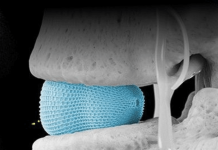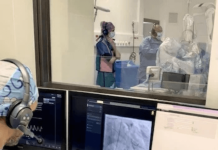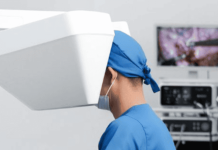Chicago-based neuromodulation firm Turing Medical has announced that its automated end-to-end brain mapping system designed to prepare clinicians to carry out neuromodulation therapies has been awarded 510(k) clearance by the US Food and Drug Administration (FDA).
Designed as a platform and mapping solution aimed at providing personalised, precise data to support decision-making in planning for neuromodulation therapies for neurological disorders such as Parkinson’s disease, the device has now been granted US market clearance.
Related: Germitec gains FDA approval for Chronos ultrasound probe disinfection device
Turning says that its platform uses advanced imaging and algorithms to generate detailed, patient-specific brain maps, allowing clinicians to more accurately identify optimal targets for neuromodulation therapies like Deep Brain Stimulation (DBS) and Focused Ultrasound (FUS). The company argues that integrating personalised patient data into the planning stages works to improve therapy outcomes, reduce off-target effects, and shorten recovery times.
Leo Sugrue, medical advisor at Turing, said: “Bullsai Identify’s personalized approach to brain mapping takes into account each patient’s unique brain structure and connectivity, offering the potential for better-targeted, more effective treatments. This can lead to more accurate therapies, fewer side effects, and ultimately, better clinical outcomes.”
The software works by incorporating anatomical and connectivity data to generate highly detailed brain maps, these are then used to inform decisions in what appropriate therapy to use where. Research by GlobalData found that by 2024 the global neuromodulation market it set to be valued at approximately $6.4bn, by 2030 that figure is expected to rise to $9.4bn.
Damien Fair, co-founder of Turing Medical, said: “Bullsai Identify’s personalized approach to brain mapping takes into account each patient’s unique brain structure and connectivity, offering the potential for better-targeted, more effective treatments.
“This can lead to more accurate therapies, fewer side effects, and ultimately, better clinical outcomes.”
Elsewhere in the burgeoning neuromodulation market US competitor Zynex Medical has received 510(k) clearance from the FDA for its own electrotherapy device, TensWave. Away from the US, Australia’s Therapeutic Goods Agency (TGA) has pulled spinal cord stimulators from shelves after research argues that the devices have no effect at mitigating pain.






